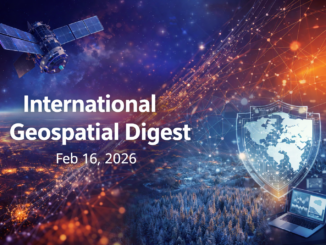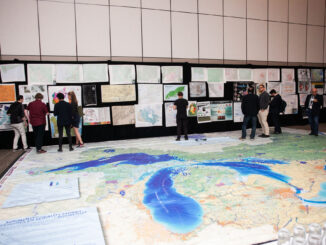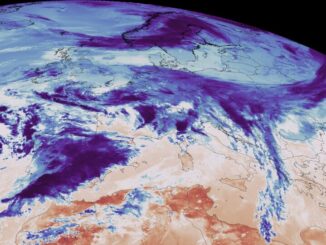
The Open Geospatial Consortium (OGC) seeks comments on the draft charter of a proposed Earth Observation Exploitation Platform Domain Working Group (DWG). 
Earth Observation (EO) data captured by satellites has always been ‘big’ but an ever-increasing number of satellites capturing data at higher spatial and spectral resolutions has meant that client access to EO data has required larger and larger downloads, and even in-house IT infrastructure just to manage the volume of data. Thus, the incentive to create cloud-based, web-accessible platforms in which to access and analyse EO data on-the-fly has also grown in recent years.
This incentive has meant that cloud-based EO ‘Exploitation Platforms’ have been independently developed by many public organizations and commercial companies. However, their independent development has also hampered interoperability between these platforms. The next step in this data exploitation revolution, then, is to link the platforms together to create an ecosystem in which each platform can contribute its offered services to the implementation of more complex use cases.
For example, a scientist assessing climate changes may need data across several providers – from vegetation indexes, to predictive rainfall models and more – in order to answer a research question. Standardized elements of EO Exploitation Platforms could provide a single interface for this climate scientist where each ‘cloud’ talks to each other in the background, sharing the data, applications, tools and services between the platforms to generate a final result for the scientist.
Indeed, the ESA EO Exploitation Platforms built to date all share a common set of functionalities ripe for standardization:
- Data provisioning;
- Information visualization and analysis;
- Data processing; and
- User Authentication, Authorization, and Accounting.
This Domain Working Group will bring together service and technology providers of Earth Observation Data Exploitation Platforms in order to define a standards-based framework for the platforms’ interfaces that addresses and unifies the platforms through this common set of functionalities.
The Earth Observation Exploitation Platform DWG draft charter is available for review and comment from the OGC Portal. Comments are due by 30 May 2018 and should be submitted via the method outlined at www.opengeospatial.org/standards/requests/168.
See the OGC’s Domain Working Group and Standards Working Group pages to learn about other standards activities that are ongoing in the OGC. There is currently strong emphasis on topics related to Internet of Things, Smart Cities, Aviation & Unmanned Systems (eg UAVs), Big Data, Linked Data, Disaster Response, Maritime, and more.
About OGC
The Open Geospatial Consortium (OGC) is an international consortium of more than 525 companies, government agencies, research organizations, and universities participating in a consensus process to develop publicly available geospatial standards. OGC standards support interoperable solutions that ‘geo-enable’ the Web, wireless and location-based services, and mainstream IT. OGC standards empower technology developers to make geospatial information and services accessible and useful within any application that needs to be geospatially enabled. Visit the OGC website at www.opengeospatial.org.




Be the first to comment